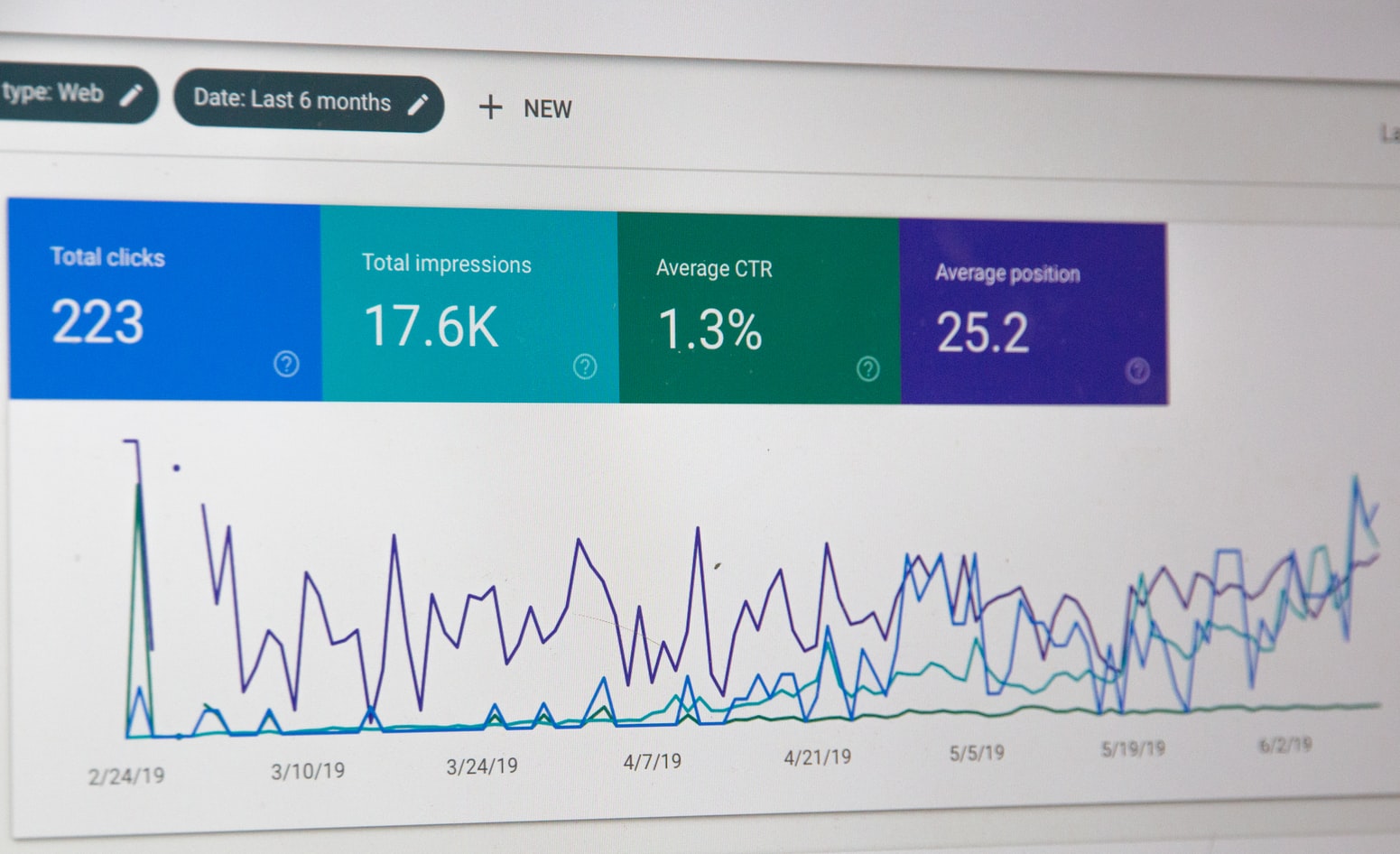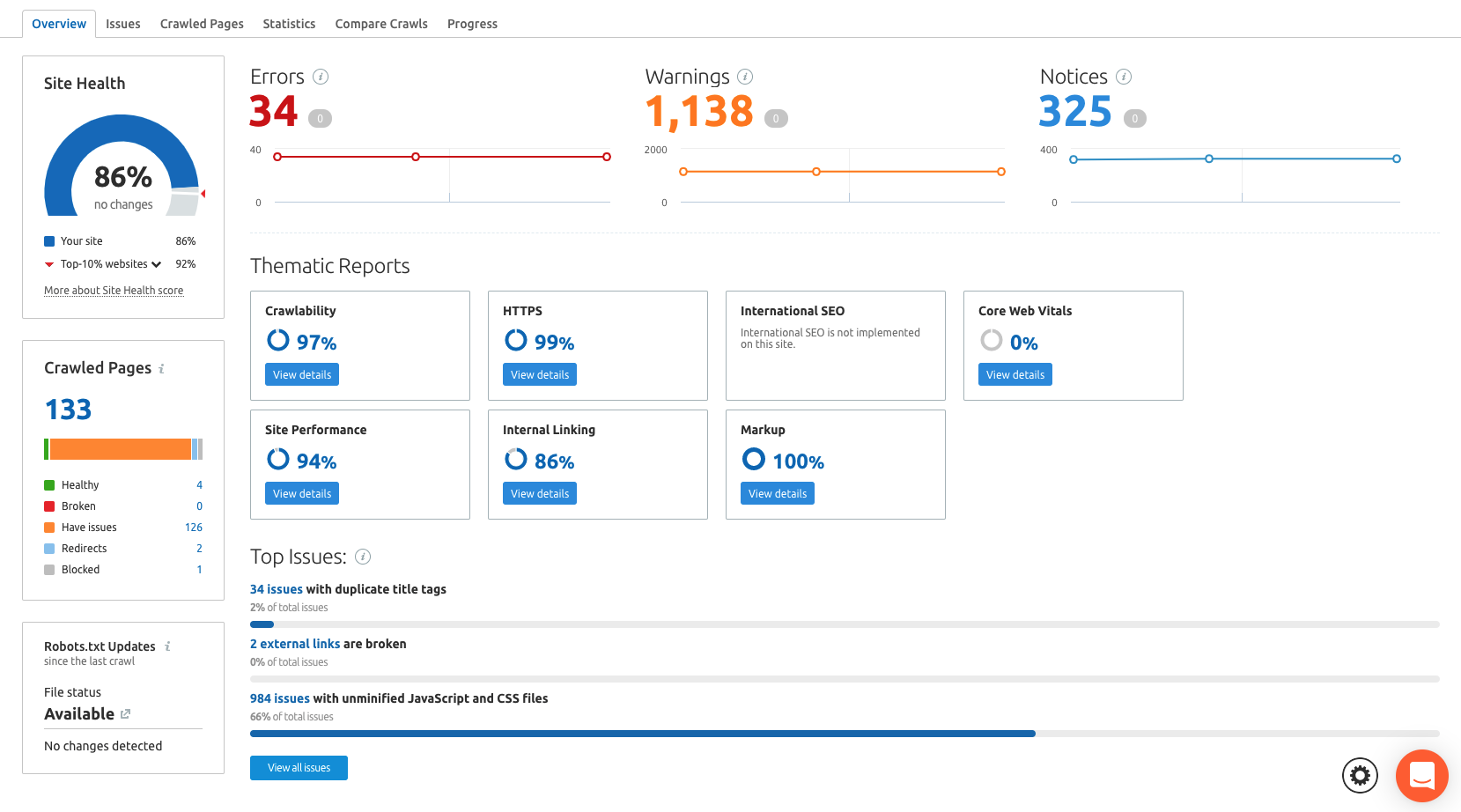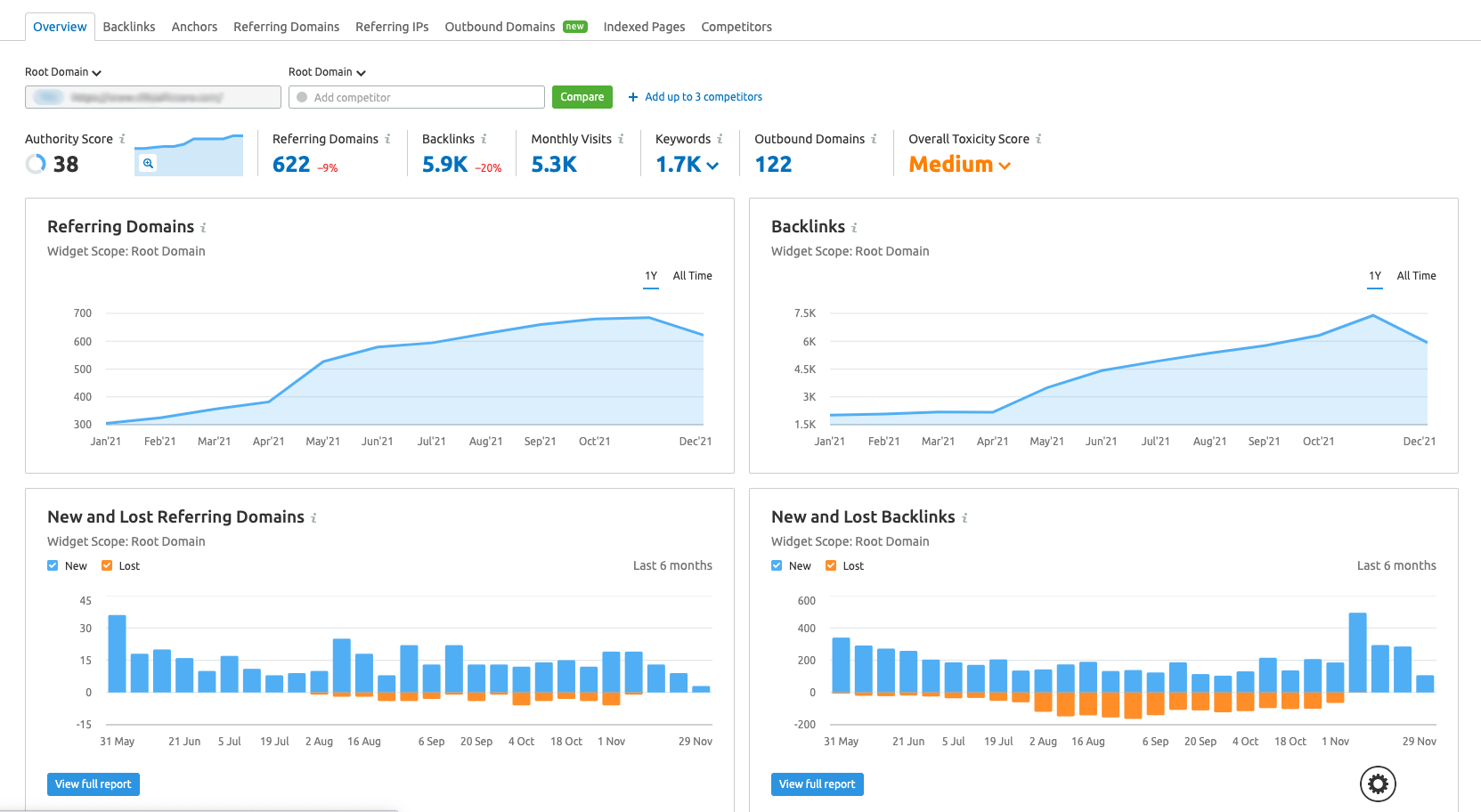December 3, 2021
SaaS is a booming business model, and the SaaS market has been growing rapidly year on year over the last decade. It’s definitely a great industry to get involved in, but rapid growth translates into an increasingly competitive market. There are various ways to scale your SaaS business and stay ahead of the competition. Securing funding and improving your product offerings and customer service are fundamental parts of it. Equally important is to develop a successful marketing strategy that will help your company acquire new customers, and the cornerstone of that strategy should be your SEO efforts.
A robust SaaS SEO strategy, whether created in-house or with the help of an SEO agency, is what will drive your brand toward sustainable growth and success. Our comprehensive SaaS SEO guide will take you step-by-step through planning and implementing the SaaS SEO strategy you need to increase visibility, grow traffic, improve user experience and make a real difference to your company’s bottom line.
Software as a Service (SaaS) is the delivery of applications over the Internet as a service. That means that instead of downloading and installing software on your desktop computer or business network, you simply access it via an internet browser. The fundamental advantages of SaaS include accessibility, compatibility and easy operational management, among others. Also, lower upfront costs compared to traditional software makes it more readily available to smaller companies and start-ups.
Simply put, SaaS SEO is pretty much everything you do to improve your SaaS company’s site performance on search engine results pages (SERPs). The aim is to build and optimise your company’s online presence to get your landing pages, blog content, and product pages as high on SERPs as possible. The higher your rankings, the more traffic you get. Simple as that. But optimisation is not only about increasing visibility and driving qualified traffic to your website. Nowadays, it’s also about creating the most personalised experience for your website users.
SEO is the foundation for a sustainable and scalable SaaS growth strategy. Nevertheless, it’s not a straightforward undertaking; it takes significant time, effort, and investment. Results from SEO don’t happen overnight, there are no longer any silver bullets or quick fixes, and in general, it’s a long term game. However, if done well, it’s definitely worth the effort.
While there are differences between SaaS SEO and SEO techniques for other verticals, it’s important to remember that Google’s main ranking factors remain the same for all different types of business: high-quality content that provides value to your audience, high domain authority, and backlinks from high-authority sites.
It’s pretty common for new SaaS companies to turn to PPC (and other forms of performance marketing such as social advertising, affiliate marketing, etc.) as a fast way to kick-start brand awareness and increase customer acquisition. And yes, if you have the budget, a well-structured PPC campaign can bring immediate results – unlike the long game that is SaaS SEO. PPC can also work very well if you need to promote a time-restricted offer or a new product as quickly as possible.
But, what usually ends up happening is that your cost-per-acquisition (CPA) through paid channels usually goes up over time. And even if you’re lucky enough or your campaigns are so well optimised to maintain a relatively consistent CPA, you’ll most probably reach a point at which you can’t reduce this cost any further. And needless to say that, when the money stops, the traffic stops.
That’s why it’s essential to invest in a strong SaaS SEO strategy. High rankings will bring relevant traffic to your website, although it will take time to attain those rankings. SEO is indeed a long-term strategy. It takes time. Maybe weeks, probably months. But it is free. And most importantly, when search engines recognise the quality, credibility, and relevance of your content, your website will start ranking well on SERPs, and when it does, the traffic will be constant.
Before we start discussing the main areas of focus of a successful SaaS SEO strategy, it’s essential to define what exactly you want to get out of that strategy. Setting specific, measurable goals and KPIs (key performance indicators) at the very start is the most critical part of any SEO strategy, SaaS or not.
As we mentioned before, SEO usually takes time to deliver results. Still, by setting specific, measurable KPIs, you will be in a better position to monitor your SaaS SEO strategy’s impact on your business.

KPIs will let you effectively measure your SEO efforts, identify which tactics work and which don’t and help you avoid spending time on something that doesn’t provide the expected results. The KPIs you want to focus on depend on the nature of your business and offerings. Nevertheless, there is some critical SEO KPIs that we suggest you should continually monitor:
A strong SaaS SEO strategy requires excellent planning, successful implementation and regular reporting. Below we’ll analyse the three SaaS SEO priorities that will work as the framework for effective SEO for your SaaS business:
Indeed, successful SaaS SEO strategies are often powered principally by high-quality content that provides value to your audience. Nevertheless, that doesn’t mean you should ignore the importance of technical and on-page SEO. A website that suffers from technical issues and is not well-optimised will never reach its full potential no matter how good your content is.

So the first step is to perform an SEO audit on your website. An SEO audit is a process of identifying issues that could prevent your site from ranking on Google and other search engines. Run a full-site crawl using a tool like Semrush Site Audit Tool to identify technical errors and performance issues and find opportunities to improve your site’s technical SEO.
Start with fixing indexation and mobile-friendliness issues, check your redirects, fix broken internal links, and confirm that your site uses HTTPS. Then check your on-page SEO by optimising title tags, meta descriptions, images and header tags.
Next, analyse your site’s speed. It is more important than ever that your site is fast, both from SEO and UX (user experience) perspectives, as the chance of a user bouncing increases significantly the slower a page loads. Google PageSpeed Insights is a great free tool to get recommendations on specific actions you need to take to improve your site’s speed.
Running a thorough SEO audit will also help you better understand your site’s page experience, which is linked to site speed and mobile-friendliness and has been lately introduced as one of the main ranking factors by Google. Improving the quality of user experience is key to the long-term success of your site, so monitoring and optimising your Core Web Vitals is essential. Core Web Vitals are Google’s most important quality signals for delivering a great user experience online. They focus on three aspects of the user experience: loading time, interactivity and visual stability.
Once you’ve completed your SEO audit and have identified potential issues, jump straight into fixing these by prioritising tasks based on the severity of the problem and the time and effort required to fix it. Finally, it’s important to remember that an SEO audit is not a one-time thing. We suggest performing monthly audits to identify issues that could be holding your site back.
Content marketing is one of the most essential parts of your SaaS SEO strategy that focuses on providing the right content to the right (current or potential) customer at the right time. Content marketing is all about creating and distributing valuable, relevant and consistent content to attract, engage, delight and retain a clearly defined audience. It will help customers realise their needs and pain points, understand your product and how it can solve their problems.

Most importantly, by developing a solid positioning and messaging, SaaS content marketing can not only help you reach new customers but will also place your company as an industry thought leader. By building credibility and trust, you can efficiently communicate why prospects need to switch from your competitors to you and why they need to do it now. Focus on publishing regular content informed by thorough keyword research and competitor analysis.
A comprehensive content strategy allows you to create content with a purpose that showcases your company’s expertise, attracts backlinks, gets social media shares and generates leads. Most importantly, it enables you to map your content to your target audience and effectively match it to each stage of the sales cycle, from awareness through consideration and purchase to customer retention and loyalty.
The awareness stage is the first stage of the sales funnel where your potential customer is aware that they have a need or a problem, and they are researching the information that will help them better understand it. At this stage, you want to make potential customers aware of your business by creating educational content that focuses on their questions, pain points and challenges. Educational articles, e-books, and videos work considerably well for this stage.
During the consideration stage, after they’ve identified their need or problem, a prospect is now considering different solution options. The consideration stage is the phase of the buyer’s journey where you offer this target audience information that considers your product as a viable solution to this need or problem. Focus on case studies, how-to articles, how-to videos, checklists and product comparison guides.
When the prospective customer identifies their problem and how they can resolve it, it comes down to the decision stage, where they are about to decide between the available options. At this stage, your content should be highly personalised, focusing on providing answers to the prospect’s concerns and on whatever they need to know before making a purchase.
You should use your expertise, knowledge and unique selling proposition as the foundation and proof that your product is the best choice and can meet the customer’s individual needs. For that customer journey stage, your content should include customer stories, product videos, buyer’s guides, case studies, product FAQs and user-generated content that can work as social proof.
It is evident that for e-commerce businesses, turning one-time buyers into returning customers is vital as loyal customers tend to spend more money down the line. On the other hand, many SaaS companies consider the buyer’s journey completed when they win a customer, which can be a big mistake.
Perhaps a customer only needs one licence of your software, but what about upselling or cross-selling opportunities? Also, happy customers not only might spend more, but they are also more likely to tell their friends about your software. But how can content marketing boost customer loyalty?
In the loyalty stage, the relationship between your company and the user is new, so there’s abundant opportunity to establish and strengthen your relationship. But, as with every other stage of the customer journey, the key is to reach your new customers with the right content at the right time.
Create content pieces that help your new customer get the most out of your software and answer any questions they might have about it. Additionally, encourage them to sign up for email alerts and newsletters. Not only does this get the content directly to your customers, but you can monitor the relationship in your CRM. Product guides, e-books, newsletters, product updates and how-to videos are great ways to share information and techniques that are truly useful to your new customers.
SEO outreach is the third area of focus for a successful SaaS SEO strategy and involves obtaining backlinks from authority websites. A backlink is a link created when one website links to another. Backlinks, also called “inbound links”, are very important for SEO as they are a signal to search engines that other sites vouch for your content, hence it is worth ranking on a SERP. The process of obtaining backlinks is known as link building.
So the more backlinks I get, the better, right? Not really. Unfortunately, not all backlinks were born equal. Backlinks from trustworthy, popular, high-authority sites are considered the most desirable links to earn, while backlinks from low-authority or spammy sites should be avoided. Also, you should aim for “do-follow” links, which are backlinks that the site owner has specifically instructed search engines to pass link equity.

Backlinks are a key component to your SaaS SEO strategy, but they can be pretty challenging and time-consuming to get, especially if you’re just starting your SaaS business. That’s where competitive backlink research comes into play. First, identify your top competitors and then conduct competitive backlink research using a tool like Semrush Backlink Analytics or Moz Link Explorer. These tools allow you to discover the domains that link to your competitors’ websites, also known as their backlink profile. This information can provide you with a starting point for your link building efforts.
The benefits of good quality backlinks aren’t just for SEO. Link building can often involve outreach to other websites and blogs in your vertical that will help you build long-term relationships with key figures of your industry, increase brand awareness, and even establish you as an authority in your niche.
Another benefit of getting a link from a high-authority, highly-visited site besides the impact on your rankings is that it might also lead to an influx of traffic to your website. And if it’s a link from a relevant website, the chances are that the traffic is also relevant and may lead to an increase in qualified leads.
We offer a full range of SEO services, all aimed at improving your website’s organic visibility and traffic, engagements, and enquiries. Our SEO experts provide advanced, data-driven SEO and UX insights that, when implemented, will make your SaaS website as search engine and user-friendly as possible.
A major advantage of being a full-service agency with two decades of experience is that we can offer on-page, off-page and technical SEO as well as content marketing services. We craft bespoke, tailor-made SEO strategies for new and existing websites that drive results that truly matter to your business.
We’ll help you grow your website’s traffic, increase sales and leads, and improve user experience. We’ll also look at your website’s structure, technical health, and onsite optimisation, making it as technically healthy as possible. Our work is all data-driven, with bespoke monthly reporting and ongoing consultancy.
If you would like to know more about our SEO services, please don’t hesitate to contact our team.